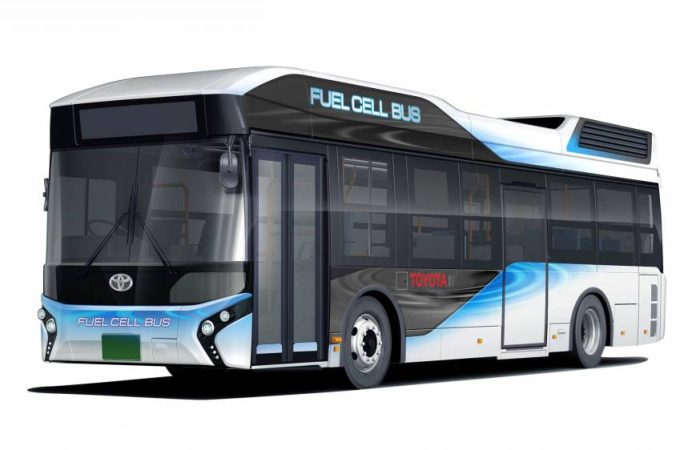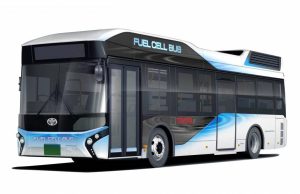
Image credit: toyota.pressroom.com.au
Toyota Motor Corporation announced that it will begin selling fuel cell buses from early 2017 as part of its commitment to contribute to the realisation of a hydrogen-based society.

Image credit: toyota.pressroom.com.au
The Bureau of Transportation of the Tokyo Metropolitan Government has conducted repeated field tests for practical use and now plans to utilise two of these fuel cell buses as fixed-route buses.
Toyota, which plans to introduce over 100 fuel cell buses in the Tokyo area ahead of the Tokyo 2020 Olympic and Paralympic Games, said the buses will be sold for the first time in Japan in early 2017 to raise the general public’s level of understanding of fuel cell buses as a form of public transportation.
“In preparation for the Tokyo 2020 Olympic and Paralympic Games the number of fuel cell buses being introduced will increase steadily,” the company said in a press release.
“Toyota aims to engage continuously in the development, targeting the expansion of the introduction of new fuel cell buses from 2018, contributing to the realisation of a hydrogen-based society.”
In developing the fuel cell bus – which goes by the model name Toyota FC Bus – the company relied on the experience in developing fuel cell buses together with Hino Motors Ltd.
“The Toyota Fuel Cell System (TFCS), which was developed for the Mirai fuel cell vehicle, has been adopted to provide better energy efficiency in comparison with internal combustion engines and to deliver superior environmental performance, with no CO2 emissions or substances of concern (SOCs) when driving,” reads the press release.
“The bus also uses a high-capacity external power supply system. With a power supply capable of a 9kW maximum output, and a large capacity of electricity supply at 235kWh, the fuel cell bus can be used as a power source in the event of disasters, at evacuation sites such as school gymnasiums or its electricity supply can also be harnessed for home electric appliance use.”




















